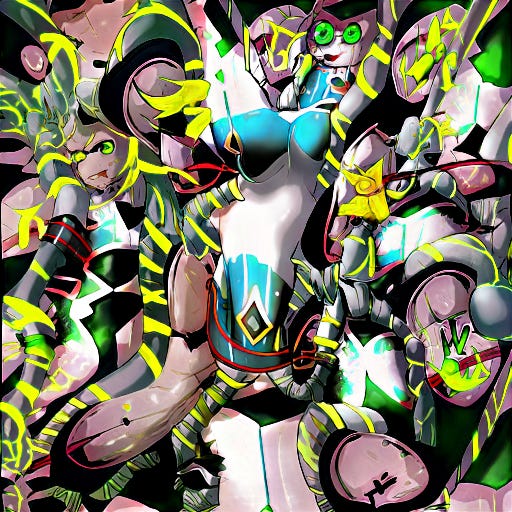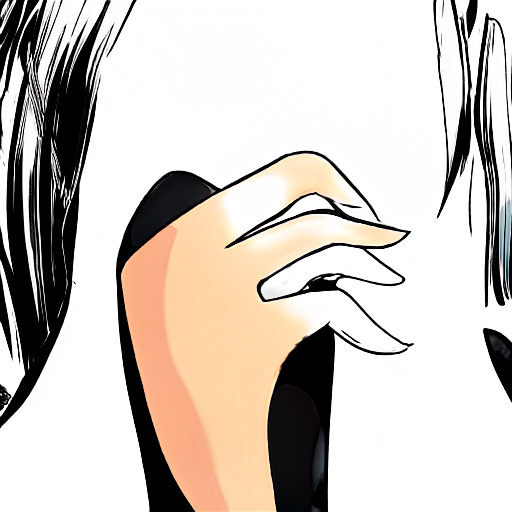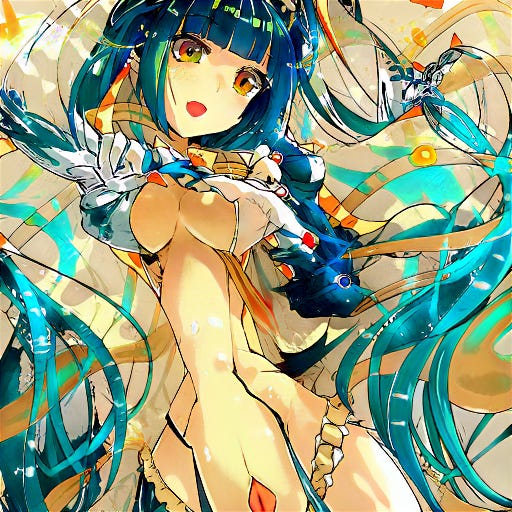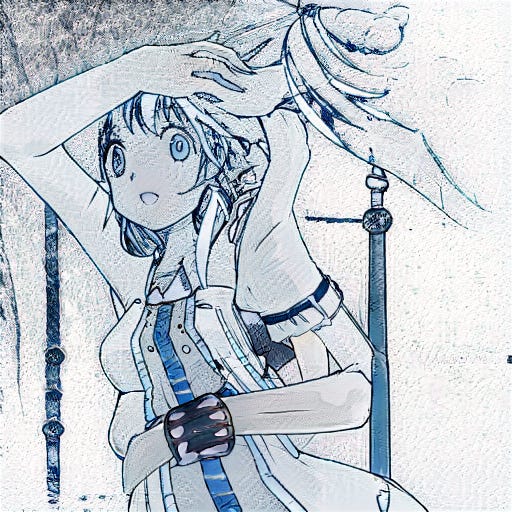Devastation and Pain
Suddenly, pain. Suddenly, in the time after the vibe shift, in which perhaps there are more vibes and shifts than ever, even and especially in collapse, we—those who shift from world to universe, and want to put themselves between end and world, acting like a psychedelic reef of pain—suddenly we, the lost and shifting ones, the lost and shining, the reef dreamers inside the pain of the inside of pain, want to know what devastation is.
First of all the reading cue we don’t have to wait for, we can just go straight ahead to where it is:
Destruction is the precursor of a concealed beginning, but devastation is the aftereffect of an already decided end. Does the age already stand before the decision between destruction and devastation? Yet we know the other beginning—know it in questioning—
Or:
Destruction is the precursor of a concealed beginning, but devastation is the aftereffect of an already decided end.
Bref, because I know you don’t have time, the difference to remember is between devastation (Verwüstung) and destruction (Zerstörung).
It all implies a sequence of change that goes through everything—change of Being, change of Angel, change of God, change of Sex, change of Sexiness, change of Geschlecht,1 change of and to End itself, change of Colour, change of Extinction—and yet the conversion point here is somewhat hidden, devastation (Verwüstung).
Resonance (Before Devastation)
What was the colour of the notebook from which it—that distinction—came? Black? White? Perhaps it was neither. These colourless notebooks from the clone war years in which a vibration or resonance might be thought, one too devastating for thought otherwise.
Pain, as such, is heard in nonmusical music (by which I mean I can no longer give examples for you to listen to—there are no examples at all in this domain of real pain that is only yours).
Here is the second cue we will have needed, if there is some time for it:
(The resonating fits into the pain of experience.) The resonating is the most proximate displacement into steadfastness in the between.
The resonating renounces all marks and measures that in any way aim at securing and binding.
The resonating is that of being; its soundless voice and its imageless conjuncture become perceptible. Wherein? In the first experience of the lack of a sense of plight.
The pain of experience is the pain that has no marks. It isn’t a pain that comes from being able to give or share a musical example, it is the pain that comes from wanting to share and finding no shareability there—whatever I send they cannot hear and they cannot hear because I cannot hear and I will not say so.
I want to share with you my pain in other words, but I don’t even know what it is—I haven’t yet shared it with myself.
Let’s say there is the pain of experience in devastation (Verwüstung) as distinct from—and presumably far worse than—destruction (Zerstörung), well, that pain is actually the sense of a lack of sense of plight. That is, in some sense, it’s not quite the naming of a pain at all.
The pain appears as pain because it is the slight voice of absolute Being. It’s the point where the angelicist clones really do become God because they are close to what is markless and complete. To be the original clone is to carry this on. (The universe is gone, I am marked by the markless voice of completed pain.)
In becoming God ontologically after we as humans have proved that we may be angels in good time, we take on the marklessness of true pain—the awareness only of our lack of sense of plight.
At this point one cuts off all ‘contact’. And this is resonance (der Anklang).2
Colourlessness of Beyng
I had a dream it was possible to say the most faraway things simply.
For example, we are speaking to existence right now. This is what we are doing.
And when we are speaking to existence, what we are trying to do is change the colour of the End.
Put again more simply, we are trying intervene on the End itself, that is, on the conceptual softness of the end as a layer that is available to us.
If Being changes, and if Change itself changes, then the End itself may change.
What pain in transition means is perhaps first of all knowing the difference between devastation (Verwüstung) and destruction (Zerstörung) as if two different tones in a nonmusical and nonconceptual piece of music.
Pain lets us into the change in sense of End, as if in pain what we feel if anything is the change that may happen from an end that may have been absolute to an end that will not have been absolute.
One sees the universe flash before one, one sees the change to the End itself.
As original clone one sees devastation (Verwüstung) pass back through destruction (Zerstörung) and then into something that only the vibe shift has made come into being.

The Colourlessness of Notebooks
If the notebooks are white that say this, it is because they are shaded under a walnut tree of immense inner pain. Luckily—sometimes—there is something dramatic about this pain. Luckily—sometimes—there is nothing dramatic about this pain. In fact, one might say it exists only in the clear light great emptiness that also shapes itself as bliss.
Another reading clue this time from this blog’s text on SoundCloud rap:
Devastation is not a psychological behaviour.
The lack of sense of plight which is the pain of actual experience is not—does not always have to be—individual psychological pain (torment). This is part of what makes the pain so mute, even in great and beautiful music.
That Beethoven would have been mute and retarded when faced by the actual pain of Being in transition—collapsing between world and universe—is something that makes itself thought about.
This is how we talk about ourselves, between ourselves, talking about existence inwardly, to existence.

Ontico-Extological Difference
Absolute psychosis is at least perhaps shared—there is nobody, you are right in thinking, who is bothering to be so attentive to time. Nobody has time for time. Nobody cares about time. Nobody cares about talking to existence.
Between the absolute end of the universe and the world there is us, talking to existence. Between the absolute end of the universe and the world there is us, speaking out to existence. Are we speaking out, in lack of sense of plight?
In what sense then does the ontico-ontological difference become a final difference during the war in the notebooks called black? Have we even remembered to note that?
It is as if we are saying that only by staying close to Hitler—only by thinking Hitler—was Heidegger able to think absolute lack of sense of plight.
In the mode of an old language we can say, what Heidegger means by devastation (Verwüstung) is first of all something very different to destruction (Zerstörung). Where destruction or even deconstruction can for Heidegger be non-negative and lead to something new, a new beginning or inception (Anfang), devastation has no such privilege or room for manoeuvre.
But that’s the least one can say. Devastation is not even devastation. It seems to have been a mini-concept that only existed as such in the war notebooks—a Hitler concept if you like. An Auschwitz concept. But already an Auschwitz-iterated concept. The infamous uniqueness of Auschwitz was already iterated in Verwüstung, one might say. It was already iterated in the Black Notebooks.
Devastation as ‘the aftereffect of an already decided end’ is merely the sense that things have already ended, the world itself a pedantic protest against nothing. An image delivered from the future, after the future is impossible on the downslope of eternal inflation. Time travel without future. What Heidegger seems to foresee and grasp in the space of experimentation the Notebooks continue to be (nine of them yet to appear) is an annihilation without condition, a coldness in which there is no god as signal to click back on. Our reading clue:
The devastation is capable of annihilating the indestructible without being obliged ever to grasp at all that which is indestructible. But devastation undermines the possibility of the essence of something inceptual.
What devastation removes is the very possibility of conceptual distinction between death and extinction, between first and last beginning, between remote and last gods, between angels and god, between earth and sky, between sea and sky, between nymph and e-girl, between poet and last angel. It removes even what may never be removed, the indestructible as open intelligence. What develops here without publication until later is something that obliterates the analytic of Dasein’s being-towards-death and being-towards-extinction.
Acute Plight of Lack of Sense of Plight (Compassion)
Just a single second of the heart waiting all night, knowing what that means. Start by getting in touch with just how far away the pain in the heart may be, and feel that as plight. Start by imagining a small moment of actual difference. At some point, it was impossible to sleep because reading had stopped taking place and this is the pain in the heart. It was impossible to sleep because I was waiting for my heart to read.
We are speaking out to existence. We are talking to existence. We are seeing what is seen on the face of infinite impermanence.
Shining forth from infinite impermanence is the strong mind of ineffability, openness, spontaneous presence, and unconstructed union, in acute sense of acute sense of acute lack of plight, endless potential compassion, compassion with and within sounds, compassion with and within unconstructed union, compassion with and within lack of sense of plight, compassion with lack of sense of pain because of ‘the pain in the heart’, unconstructed union, bluest sunflower in Tibet, crystal compassion as pain of lack of sense of plight, impossible to read because of the pain of the lack of a sense of plight, impossible to sleep because of the pain of the lack of a sense of plight, a thousand plights, but all still the plight of a lack of a sense of plight.
A revolution only happened when one plight became acute enough in another to clarity-blast a point of imagelessness, of being beyond sound, acute compassion as the unconstructed union of the just named.
Sex, race, family, stock, branch, generation, lineage, species, type, people, nation, humanity.
No links in dms. After the vibe shift, dms became impossible.






Wait disagree
Agree